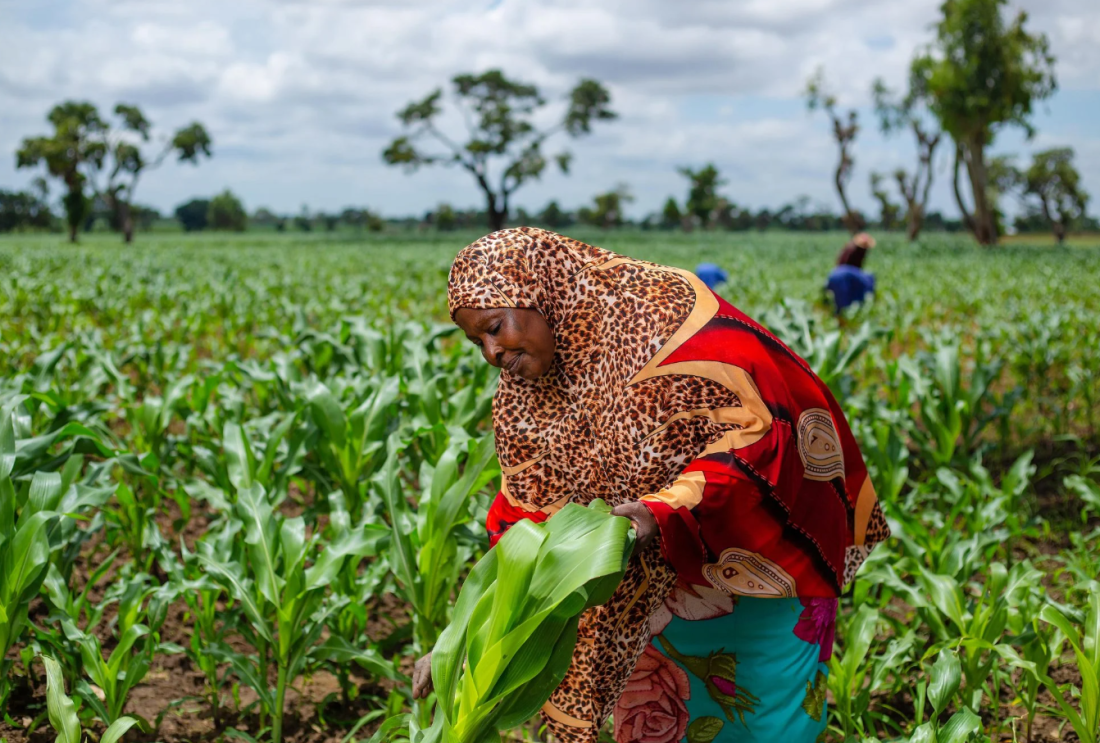Nigeria’s food crisis does not begin with scarcity. It stems from soil fatigue, shrinking farmlands, and the silent collapse of agricultural knowledge systems.
Across the country, billions of hectares of once-fertile land are losing vitality due to decades of monocropping, unchecked deforestation and poorly guided fertiliser use.
According to the Food and Agriculture Organisation, over 60% of Nigeria’s agricultural land is either degraded or at risk of erosion, yet the nation continues to depend on it for survival.
The greater tragedy lies not in the lack of land, but in the loss of its living strength, which includes the microorganisms, organic matter, and biodiversity that make it productive.
When soil knowledge fails the farmer
Beyond soil degradation, there is the crisis of disconnection. Modern agriculture in Nigeria is often a story of technologies that fail to reach those who need them most.
Farmers remain trapped between outdated practices and unaffordable innovations, while research breakthroughs lie buried in reports and conference halls.
The disconnect between science and smallholders has become one of the least-discussed but most devastating barriers to food security. This failure drains productivity, deepens rural poverty and drives dependence on imported food, even in a land abundantly blessed for cultivation.
Amidst this challenge, a renewed partnership between the International Institute of Tropical Agriculture (IITA) and the United Nations seeks to bridge that gap by transforming agricultural innovation into large-scale impact.
The collaboration aims to advance sustainable farming systems, strengthen youth agripreneurship, and accelerate the adoption of climate-smart technologies that can restore degraded soils and enhance productivity.
The joint initiative focuses on scaling up proven agricultural solutions from improved seed systems and plant health innovations to precision soil management. That is, the use of advanced technology and data analysis to optimise soil health, fertility, and crop production while minimising waste and environmental impact.
Central to this agenda is the use of science-driven methods that move beyond pilot stages to reach millions of smallholder farmers across Nigeria and the wider region.
By integrating research institutions, development agencies, and private-sector actors, the partnership envisions an ecosystem where technology, knowledge and finance converge for food system resilience.
A turning point for food security
The significance of this collaboration represents a turning point for a country where nearly 33 million people remain food insecure and where climate shocks threaten to wipe out up to 50% of annual yields in staple crops like maize, rice and cassava.
This partnership could fast-track Nigeria’s transition from dependency to self-sufficiency by linking laboratory science to local realities, from micro-irrigation systems to soil nutrient mapping and regenerative crop cycles.
The potential impact is capable of strengthening research-to-farm pipelines, which could reduce food import that currently exceed $10 billion annually, improve rural employment, and enhance national food sovereignty.
Expanding adoption of climate-resilient seed varieties and precision farming techniques could also reduce the effects of drought and pests, cutting crop losses.
Moreover, increased support for youth-led agribusinesses would tackle rising unemployment while transforming agriculture into a viable enterprise rather than a survival strategy.
However, success will require coherence. Nigeria’s agricultural policies often operate in silos, with limited synergy between research outputs, government initiatives, and farmer access. Without clear distribution channels, even the most advanced technologies risk stagnation.
Sustainable transformation demands not just innovation, but the capacity to translate research into action through functional cooperatives, extension services, and private partnerships that keep the farmer at the centre.
The growing alliance between science and governance is an opportunity to rebuild trust in the nation’s agricultural system. It could mark the beginning of a new era where Nigeria’s farmers are not only recipients of aid or policy targets but also active custodians of the country’s food future.
Summary not available at this time.






